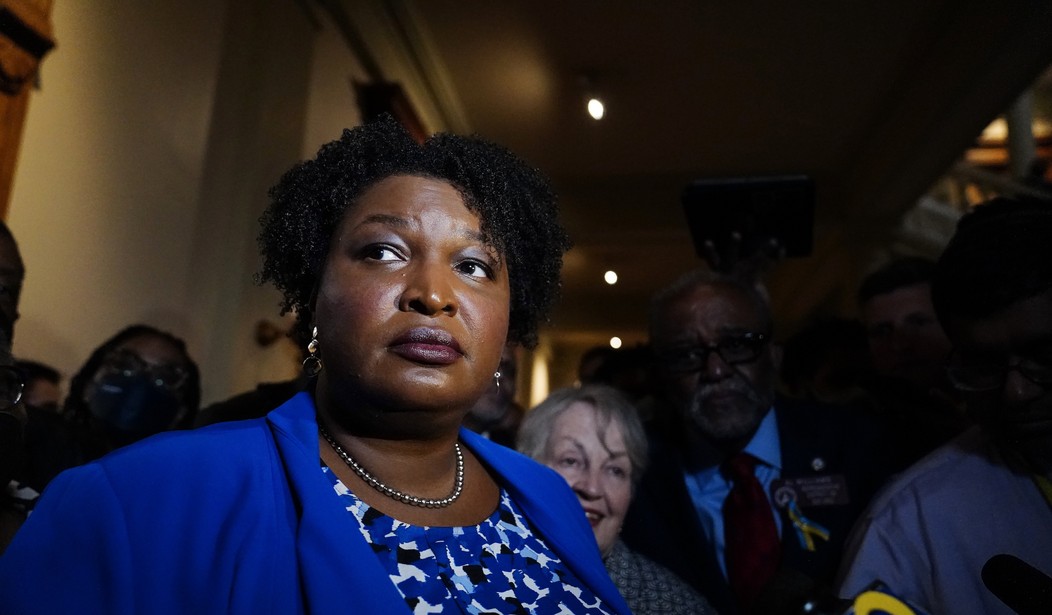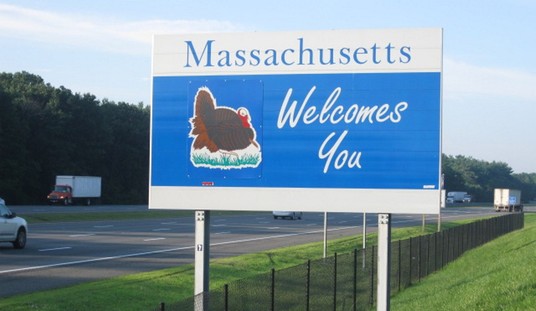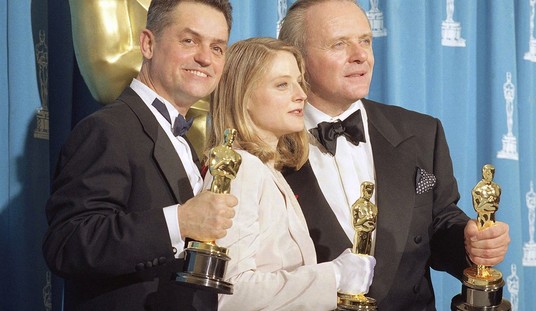A new report published on Monday might end up being the dagger in the heart of Stacey Abrams’ bid to become Georgia’s next governor. Apparently, a voting rights organization founded by the gubernatorial hopeful spent over $25 million over two years on legal fees. Most of the spending went to a boutique law firm co-founded by her campaign’s chairwoman.
Politico reported:
Allegra Lawrence-Hardy, Abrams’ close friend who chaired her gubernatorial campaign both in 2018 and her current bid to unseat Georgia Gov. Brian Kemp, is one of two named partners in Lawrence & Bundy, a small firm of fewer than two dozen attorneys.
The firm received $9.4 million from Abrams’ group, Fair Fight Action, in 2019 and 2020, the last years for which federal tax filings are available. Lawrence-Hardy declined to comment on how much her firm has collected from Fair Fight Action in 2021 and 2022 — years in which Fair Fight Action v. Raffensperger, for which Lawrence-Hardy was lead counsel, had most of its courtroom activity.
Most of the funds went towards the ill-fated lawsuit, which alleged that the state had engaged in practices designed to suppress votes — especially those cast by black residents. This supposed crusade against voter suppression in the Peach State helped to raise her profile on the left and gave her a level of clout that enabled her to galvanize Democratic voters for the 2020 elections.
Fair Fight Action insists the lawsuit “served an important role in drawing attention to voting inequities”– even though a federal judge ruled against the organization, according to the report. However, others have “questioned both the level of expenditures devoted to a single, largely unsuccessful legal action and the fact that such a large payout went to the firm of Abrams’ close friend and campaign chair.”
The lawsuit started as a widespread offensive against a variety of issues, including long lines at polling spots, substandard training of poll workers, and voter registration problems. Judge Steve C. Jones narrowed the scope of the case and later ruled against Fair Fight Action.
“Although Georgia’s election system is not perfect,” the judge wrote, “the challenged practices violate neither the constitution nor the [Voting Rights Act].”
Abrams started Fair Fight Action shortly after she lost to Kemp in 2018. She refused to accept the results of the election, claiming, without evidence, that her loss was due to voter suppression. Since then, the issue has been her political bread and butter. The organization began receiving a flood of contributions. “In 2019 and 2020, Fair Fight Action raised more than $61 million — more than double the amount of any other similar entity operating in Georgia,” according to Politico.
The group has spent at least of third of these funds on the lawsuit against Raffensperger. “By comparison, the state of Georgia devoted almost $6 million to defend the secretary of state’s office in the Raffensperger case, according to the attorney general’s office,” the report noted.
Leah Aden, deputy director for litigation at the Legal Defense Fund, a civil rights advocacy organization, told Politico that most voting rights cases are far less expensive.
“The typical case is a couple of hundred thousand dollars and can take a couple of years,” she said.
Aden referenced a Texas case where the plaintiffs sought $8.8 million in legal fees. She said it was the largest sum she had seen. “Beyond $10 million would be very shocking, I would say,” she noted.
Lawrence-Hardy’s firm received the lion’s share of the legal fees as lead counsel.
“We do provide other services for Fair Fight Action,” she told Politico. “We have several matters for them.”
She is a close friend of Abrams’, having been her classmate in college in the 1990s. Their friendship spans nearly three decades.
“It is a very clear conflict of interest because with that kind of close link to the litigation and her friend that provides an opportunity where the friend gets particularly enriched from this litigation,” said Craig Holman, an expert on campaign finance and ethics at Public Citizen, a non-partisan consumer advocacy organization. “The outcome of that litigation can directly affect her campaign itself.”
After losing in 2018, Abrams managed to monetize her election denial and took in 10s of millions of dollars from Georgia residents and others, many of whom likely believed her claims about her loss. She used that to launch a lawsuit that she had no chance of winning, and used it to gain more clout. In fact, she garnered so much influence that many credit her with helping Democrats win both of Georgia’s Senate seats in 2020.
Now that it seems more than likely that she will lose even worse than she did four years ago, Abrams is already priming her followers for the voter suppression myth once again, even though early figures show black Americans representing 35 percent of votes. “Yesterday, we saw record turnout for early voting…It does not mean voter suppression doesn’t exist…We know that voter suppression is alive and well in Georgia!” she said while addressing supporters.
The question is, will the grift be allowed to continue?













Join the conversation as a VIP Member